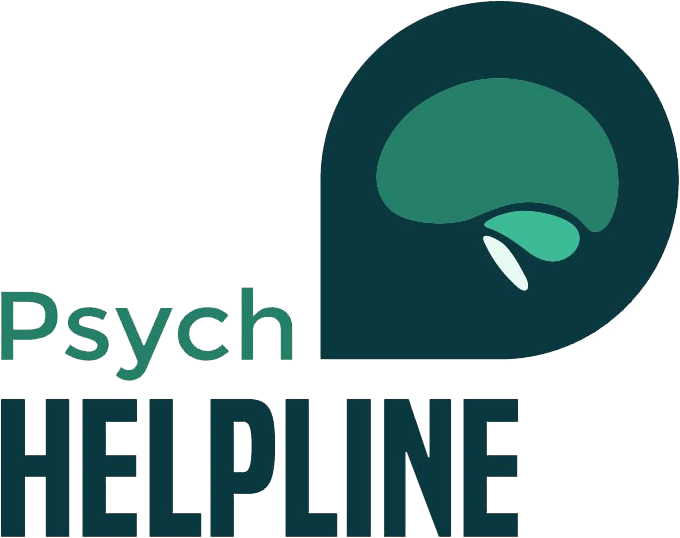Table of Contents
As a student, at least once we’ve all struggled to find ways that can improve concentration levels while studying. It’s equally frustrating and worrisome when it’s too hard to dedicate attention to a single thing. Whether it’s an important exam-related query or a creative task at hand, concentration matters the most.
Some students do have a hard time and require a bit more mental effort to make ends meet. It’s probably not even your fault. Multiple studies conducted on brain activity and concentration levels claim that concentration levels can decline over age or time. Yet, one can always redeem their span of concentration by optimizing their way of living and including a few mind-charging strategies.
Now, let’s take a look at some of these strategies so you can try and test their workability for yourself!
-
Matcha’s The Real Deal
Coffee isn’t always everyone’s cup of tea and that’s quite understandable. Yet, under dire circumstances, a caffeine overload can help you concentrate on what’s necessary. But, there’s a new beverage in town that’s already hip and TikTok famous. Yes, we’re referring to Matcha tea. It’s easy to find, easy to make, and the perfect alternative for coffee. If you’re someone who simply cannot fathom the idea of drinking coffee, matcha’s phytochemicals will have your back. Matcha tea can provide the same amount of hit as a cup of freshly brewed coffee.
Furthermore, Matcha green tea’s scientifically proven to have a positive impact on cognitive ability. Additionally, this green-colored beverage assures relaxation and can also calm down your nerves. Studies also suggest that ingesting a small piece of dark chocolate every day can also improve brain activity leading to better concentration.
-
Diagnosis Of Underlying Issues
In most cases, people often struggling with concentration levels due to some minor reasons; loud environment, exhaustion, etc. Yet, it cannot be neglected that there could be an underlying mental health issue that might be responsible for this problem. Attention deficit hyperactivity disorder is at the top of this list. Although on-time treatment can lead to improvement, the first step is on-time diagnosis. So, if you notice regular patterns of inattentiveness, it’s better to get things checked at least once.
Moreover, in a few cases, headaches related to depression or an anxiety disorder can also affect your attention span. Some other factors include; untreated head injury, a concussion in the past, developmental delay, etc.
-
Sleep Deprivation Will Get You Nowhere
There’s a large rap sheet against sleep deprivation that most of us are aware of. We’ve all heard the phrase “Early to bed, early to rise – ” but how many of us actually act on that advice? Close to zero. Thanks to the introduction of Netflix, easy access to some of these entertaining mediums are bound to keep you awake late at night.
“Your sleep schedule affects your cognitive abilities and decision-making skills.”
Clearly enough, if you’re going to spend the whole night re-watching an entire season of “how I met your mother” you can’t possibly expect to be the most attentive one the next day in your class. Apart from low concentration levels sleep deprivation can make its contribution to a long list of other health disorders too. You can improve your sleep schedule in the following ways;
- Avoid using a smartphone, laptop, or any other electronic device at bedtime. That’s because the blue light radiating from such devices can alter your sleep schedule.
- If long-term insomnia seems to be the problem, consult your nearest health professional as soon as possible.
- Make sure that the room temperature, as well as other environmental conditions, are on point.
- If you struggle with sleeping incomplete in silence try listening to a soft tune, ASMR audio, or purchase a white noise box.
- Surround yourself with pleasantly aromatic items; incense, scented candles, essential oils, etc. Lavender oil’s considered a game-changer in this regard.
-
Supplements For Over All Brain Health
The daily intake of some specific supplements can actually boost your brain health and help you achieve better concentration levels. Some of the most widely taken ones are; guarana seed, choline, omega-3, folate, etc. Make sure that you’re taking these supplements in accordance with your doctor’s advice. Furthermore, don’t forget to run down an allergy test before intake. This will ensure that you don’t have an allergic reaction to anything later on.
-
Brainstorming For 15 Minutes Every Day
Making the process a little bit more fun can help you achieve a fair share of perfection over time. There are a lot of focus-based board games and mobile applications that can help you achieve the concentration levels of your dream. What’s so special about this practice is that you’ll be having a valid amount of fun playing simultaneously. A 2015 study conducted on almost 4000 adults concluded that;
Spending 15 minutes on brain-training activities at least 5 days a week can gradually improve concentration levels.
You can try chess, jigsaw puzzles, crossword puzzles found in weekly newspapers, or download the Sudoku application on your smartphone. For the video games enthusiasts out there, now’s your time to shine. These games automatically train your brain to spend your entire focus on one thing at that very moment. Henceforth, you’ll learn how to train your mind and focus that same attention on your curriculum.

-
A Short Break’s Never Going To Hurt
Taking a small power nap can actually improve your concentration levels. Once you find yourself dozing off while solving some numerical problems, that’s your cue to take a short break. Make sure that while making a daily timetable for yourself, you assign a specific amount of time for a short break.
During that particular break, you can take a nap and do whatever you find relaxing. Giving your mind and eyes a limited amount of break can actually recharge your motivation levels as well as concentration. These activities may include;
- Watching a light-hearted comedy skit or an episode of your favorite TV series
- Taking a short walk in your street
- Taking an hour-long power nap
- Indulging in your beauty routine or self-care
- Taking a relaxing bubble bath
- Listening to your favorite records
-
Being Sluggish Has Its Consequences
If you’re someone who precisely hates the very idea of working out, we’ve got some bad news for you. Not working out and adopting a sluggish attitude can actually have adverse effects on your focusing skills. Daily physical activity actively contributes to the extent of your attention and concentration while performing any task. Try to fit in a quick cardio routine in your schedule to get that blood pumping through your body.
At the same time, as a student dedicating a specific amount of time to a workout routine seems nearly impossible. So, if joining a gym or aerobics class isn’t your cup of tea there can be multiple other ways to include physical activity in your life. These include;
- Helping your parents with chores around the house
- Taking a short walk inside your house post regular meals
- Stretching after waking up every day
- Walking instead of taking a bus or car for short distances
- Preferring stairs over the lift
-
Cramming and Diversions
Remove extra items from your study space. If there’s a whole lot of items on your study table, you’ll often find yourself inattentive. You’re more likely to divert your attention towards an item on the table instead of the academic task at hand. Keep all the essential items nearby; pen, paper, ink, etc. So, you won’t have to get up repeatedly. Furthermore, make sure that your study space is quite tidy before sitting down. In this way, you won’t contemplate the idea of getting up and fixing things up while studying.
-
Diet and Optimum Cognitive Functionality
Of course, what you’re going to eat is going to determine how your mind functions. To focus on a particular idea, your brain needs to be in its optimum form. So, undoubtedly, eating a lot of junk is bound to make your mind woozy. If you’re a student of legal age, avoid drinking alcoholic beverages as they can make your judgment and thinking abilities a little too cloudy.
Furthermore, there’s a variety of dietary items that are famous for their positive impact on healthy cognitive functionality. These healthy food staples include; eggs, fish (meat, oil, supplements), berries, spinach, almonds, etc.
-
Change The Environment and The Environment Will Change You
It’s quite stupendous to spend 2 or more hours in the same place working on the same assignment. So, get up and move around a bit. If you’ve been trying to study while sitting in one room of the house, move over to the other room. Sometimes changing the environment can get half the job done. Perhaps the wallpaper in a particular room was too attention-grabbing or the fan seemed to be too loud.
Consequently, you wouldn’t be able to completely focus on the task at hand if other things are attracting your attention. It’s even better if you have a back or front yard. Every once in a while, give yourself a chance to take a tiny break and immerse yourself in the greenery around you. It can boost productivity, concentration and rejuvenate your mind once again.
-
Bid Adieu To Your Smartphone
Yes, a short-term separation from your Smartphone can surely solve a lot of problems. So, turn off your smartphone and place it in another room. In this way, you won’t be bothered to check up on your daily notifications after every 10 minutes. Make sure that you turn the volume all the way down, so not even a single beep can disturb you while you’re focusing. Even if you like listening to music while studying, make sure that you place your phone on airplane mode or do not disturb mode.
-
A Proper Schedule’s A Game Changer
When there’s a designated amount of time dedicated to each task, students often find it easier to concentrate on a single thing. Although it seems like quite a cliché, having a proper timetable for the day can actually neutralize some of your thought processes.
Hence, you’ll be more likely to only worry about mathematics instead of wondering whether you’ll get the time for your next subject or not? Feeling trapped between two different academic subjects can complicate the situation. That’s because you won’t be able to dedicate proper attention to either of those items.
Moreover, having a proper schedule will also ensure that you have a decent amount of time for rest and rejuvenation. While compiling a schedule for yourself, make sure you include the hours that suit you the most.
If there’s a lot of noise around the house because of other residents, choose a slot when no one can interrupt you. If you live near the road, it’s better to choose the hours when there’s lesser traffic. Furthermore, some students prefer to study during the early hours as there’s no form of interruption. A study plan will also keep you motivated through the day and you’ll actively want to work on whatever’s next.

Final Words
As a student, your concentration levels determine the course of everything whether it’s a class-related activity or impending exams. Most of these aforementioned strategies are tried and tested. So, there’s always a chance of improvement and zero risks associated with any of these tips. Give each of these approaches enough time to bring forth substantial results. Additionally, it’s better to sit upright on a chair or sofa while studying. Studying while lying down, is simply a recipe for disaster because you’ll most definitely doze off. We hope that you find these tips helpful in the long run!







